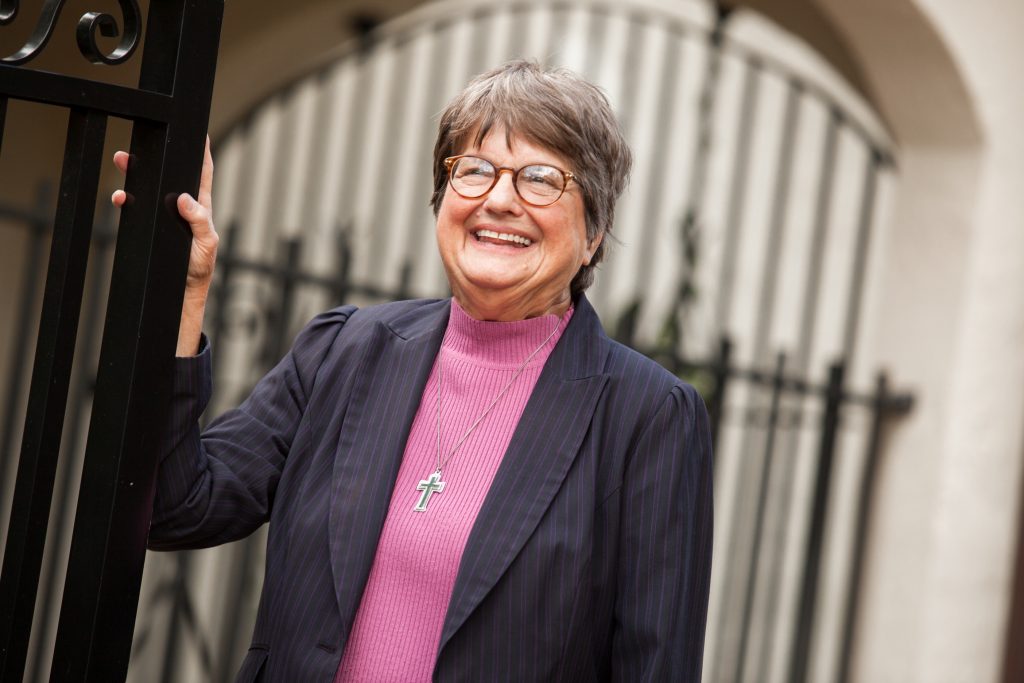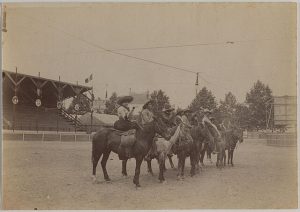Capital punishment has been used in the United States since its independence from the United Kingdom and is still applied in many of the 50 states today, with most executions in Texas, Virginia, Georgia, and Alabama. Over time, advocates have agreed that the death penalty is morally wrong and they argued that it should be considered unconstitutional, yet they have not achieved an end to capital punishment in either state legislatures or in the Supreme Court.1
During the 1700’s, advocates against the death penalty were able to restrict this punishment to those committed heinous crimes. In 1847, the anti-death penalty community helped capital punishment to be removed from Michigan. This was changed after World War I ended. In 1924, the state of Nevada decided to use lethal gas as an execution process. Then came the execution of Gee Jon for murder, which brought back death as the punishment for inflicting death or murder. 2 Anti-death penalty movements did not regain strength until Sister Helen Prejean helped to cast the debate in different terms.

Since 1981, Sister Helen Prejean has been a strong voice, and a most prominent one in the anti-death penalty community. Most humans and governments will not heed God’s commandment Thou Shall not Kill, but Sister Prejean became a strong advocate for that commandment. Beyond the religious imperative, Prejean explains how capital punishment is not useful in any way and is very dysfunctional. She has dedicated her life to God in the prison ministry in New Orleans. While Sister Prejean was living in the St. Thomas housing project, she began to write to a man who was convicted of killing two teenagers, Patrick Sonnier. Sonnier was to be executed by the electric chair in the State Prison of Louisiana.3
While Sister Prejean continuously visited Sonnier, she realized that executions were a huge issue, not only in Louisiana, but around the world. Sister Prejean wrote about her experiences in the book she wrote Dead Man Walking: An Eyewitness Account of the Death Penalty.4 She writes and explains how Louisiana’s prison system corrupts those who are involved with carrying out the execution. Especially security guards or “prison wardens” are not alert when working, along with working in that environment, is the feeling of being stressed. The stress can cause them to react in a certain ways toward prisoners and even accept the death penalty against them.5 Prejean mentions how many politicians support the death penalty mainly because they do not want to be mocked for being weak on crime by having an anti-death penalty stance.6
Helen Prejean during these times took the initiative to spend time with the victims’ families and understand why the death penalty is a win for them. The reason the victims’ families believe this is a pro for them is because it is “healing” and they receive “faux closure”. During those fifteen years, she continued to witness five other executions in Louisiana and to this day gives the younger generation information on the death penalty by writing and giving lectures.7
Prejean always took the anti-death penalty to the political system and even caused a few battles with some victories that were not big, but in that time it was still something to her. She did everything she could to gain justice, but the movement ultimately could not completely end capital punishment in the US.8

Prejean did her best to abolish the death penalty and she always gave many reasons for it, but with the issues coming against the fear of criminals and the devaluation of human lives, it is still unlikely to see its eradication in the US. Today, Prejean as the founder of “Survive” runs this victim’s advocacy group in New Orleans. In addition to that, she counsels inmates who are on death row and she provides support to the families of victims who were murdered.
Barry Scheck’s Innocence Project helps those who are innocent to increase awareness and prevent execution. Prejean has received an award from the Innocence Project of Florida for her outstanding work in advocating against the death penalty. “Sister Helen asked…”, during her speech, “…but what about the people advocating and fighting for them and the people working at innocence projects?”.9
No matter the outcome, fighting for what is morally right continues to drive advocates who stand against the death penalty. Prejean will continue to investigate flaws in the death penalty system which has led to many innocents being wrongly executed. Sister Prejean questions the justice system because of the discriminatory way that capital punishment is disproportionately applied to minorities. As she continues, there is still hope in Washington for the Death Penalty to be removed. Senator Miloscia warns against the killing of innocent people, he calls these “improper death penalty executions.”10 Although many still support the death penalty, change occurs when new elected officials like Governor Inslee pronounce themselves against capital punishment. As we learned from Sister Prejean, fighting for justice is a moral commandment.
- George Brauchler and Rich Orman, “Lies, Damn Lies, and Anti-Death Penalty Research,” 93, no. 3 (2005): 635-714. ↵
- McLaughlin, Jolie. “The Price of Justice: Interest-Convergence, Cost, and The Anti-Death Penalty Movement,” Northwestern University Law Review,108, no. 2 (2014): 675-710. Academic Search Complete, EBSCOhost. ↵
- “Biography” Sister Helen Prejean. https://www.sisterhelen.org/biography/.(2018). ↵
- Helen Prejean, Dead man walking: an eyewitness account of the death penalty in the United States, (New York: Vintage Books, (1994). ↵
- Lewis, Dorothy Otnow, Catherine A. Yeager, Pamela Blake, Barbara Bard, and Maren Strenziok. “Ethics Questions Raised by the Neuropsychiatric, Neuropsychological, Educational, Developmental, and Family Characteristics of 18 Juveniles Awaiting Execution in Texas.” Journal Of The American Academy Of Psychiatry And The Law, 32. No.4 (2004): 408-429 PsycINFO, EBSCOhost. ↵
- Daniels, Kristen Whitney. “Helen Prejean sways hearts with stories.” National Catholic Reporter 53(24), (2017): 1a-2a. ↵
- Press Release. “Innocence: Another Exoneration from Death Row—Reginald Griffin of Missouri,.” Death Penalty Information Center. (2015). ↵
- Mallory, Conally. “Abolitionists at home and abroad: a right to consular assistance and the death penatly.” Melbourne Journal Of International Law no. 1 (2016). ↵
- De La Fuenta, Alejandra. “My Experience at Innocence Project of Florida’s 2016 Steppin’Out Spring Gala.” Plain Error: The Official Blog of The Innocence Project of Florida. (2016) ↵
- Lauren Gill, “End of the Death Penalty? Washington Could Become the Next State to Abolish Capital Punishment” Newsweek, (2018). ↵



121 comments
Harashang Gajjar
Simply stated, the sixth of the Ten Commandments forbids the unjustified taking of a human life. However, the commandment itself has a couple of interesting elements that bear mentioning. First and foremost, different Bible translations give the appearance of different meanings, and there is potential for misunderstanding the actual meaning of the verse. Second, man was never created for the act of murdering another, and there needs to be an explanation for such a violent and final act towards another human being. Third, because of the translational challenge, we need to understand the difference between “murder” and “killing.” And last but not least, how does God view murder? To God, murder is not just physical in nature but also the condition of one’s heart towards another.
John Smith
The Death Penalty has been a major dilemma in America for decades now and regardless of whether it’s morally or politically correct the fight for or against Capital Punishment is an uphill battle. Personally, I’m on the fence about capital punishment, but I feel for Sister Prejean’s resolve to fight capital punishment and her kindness towards those on the death sentence.
Rebecca Campos
Sister Prejean is definitely a brave woman. No matter what the issue is, fighting for what you believe in is always a hard thing to do. The concept of the death penalty is such a prominent and controversial issue in today’s society. She dedicated her livelihood to these prisoners for fifteen years and was the voice for them when no one would listen. Her dedication and devotion to fight for what she believes in is inspirational and impressive.
Christopher Vasquez
Even in 2018, the death penalty remains a hot topic. Trying to rally her base around one of God’s Commandments is a great way to reach the more religious portion of her audience. A tactic she could consider using is showing the number of confirmed innocents who were wrongly killed due to a lack of evidence. Her cause is one of great debate; some view the death penalty as necessary to keep justice/act as a deterrent, while others see it as a moral offense against humanity. Whatever the case may be, Sister Helen Prejean believes that the death penalty is immoral, so she is doing everything in her power to help the anti-death penalty community gain a larger, more effective voice.
Mariah Garcia
Being a Catholic we see the death penalty as a sin and we should automatically be anti-capital punishment. That is what many Catholics believe in, but for me I am torn because I am not against nor am I for the death penalty. I see both sides of the spectrum: from how costly and agonizing it may be for the punisher to how it will give closer to the victim’s family. But, for Sister Helen Prejean, she does things differently. Usually people would hear the victim’s side of the story and shun the inmate (even if innocent), but Sister Helen Prejean would hear both sides. I think that is remarkable; she didn’t let anyone change her belief and she stayed strong in everything she did.
Karina Cardona Ruiz
I enjoyed reading your article and learning about Sister Helen Prejean. I admire her efforts to support her cause and represent those who have been wrongly convicted. The death penalty is a very controversial topic and warrants debate. I am not a firm supporter of the death penalty however, I can see how some may favor it. Obviously no one should be sentenced to death for their crimes unless they have been proved to commit them beyond reasonable doubt: but this can be tough. The death penalty itself can also be costly, sometimes ineffective, drag on for years, and lead executioners into an unhealthy mental state among other issues which makes me think is it worth it?
William Rittenhouse
This is defenitley an interesting article and the point you make I agree with. I’m a Catholic and I strongly believe judgment lies in God’s hands. Yet since you use faith to back your point I think you could’ve made more of an impact if you compared it with mercy killings, or abortions. All are unethical and morally wrong yet most people have double standards. Usually people agree abortion is alright, but the death penalty needs to be abolished. If you use the morally wrong argument for the death penalty than you can’t justify abortion being alright. I enjoyed reading this and you have recources that I can totally get behind.
Steven Hale
Two anecdotes in this article really shocked and disappointed me. First, you mentioned how politicians are often only against the death penalty because they do not want to be perceived as weak; fear of perception is just a terrible reason to do something, especially when someone else’s life is on the line. Secondly, I had no idea that prison staff can have an impact on someone’s sentence. It seems to me that people who are constantly around an inmate could not be objective.
Diego Aguilera
I have heard great debate about the death penalty and what it means as it could be seen as cruel punishment. I agree that it is, putting someone to death on the death penalty is cruel and cost way to much money. But the other side we have to see is that prisons at this time are being over crowded and sooner or later change will have to come. Some people view the death penalty as a “eye for an eye”, I can see why you would say this but if someone wanted to murder someone I knew I would want them in jail learning instead of just being killed. but like I said change will come as both ways are overcrowding prisons and being too costly.
Robert Freise
I feel that I see why she stood up against the death penalty because you are killing someone against their will. But let me give you a scenario, Lets say you have a son. He is your only son and you love him more than anything. He is minding his own business and he is playing basketball and a thug comes up to him and wants his phone, and he says no and he gets shot and dies, would you forgive that person? I wouldn’t. I think that the family that are the victims of the loss would want the same for the criminal that shot him. Equal punishment.